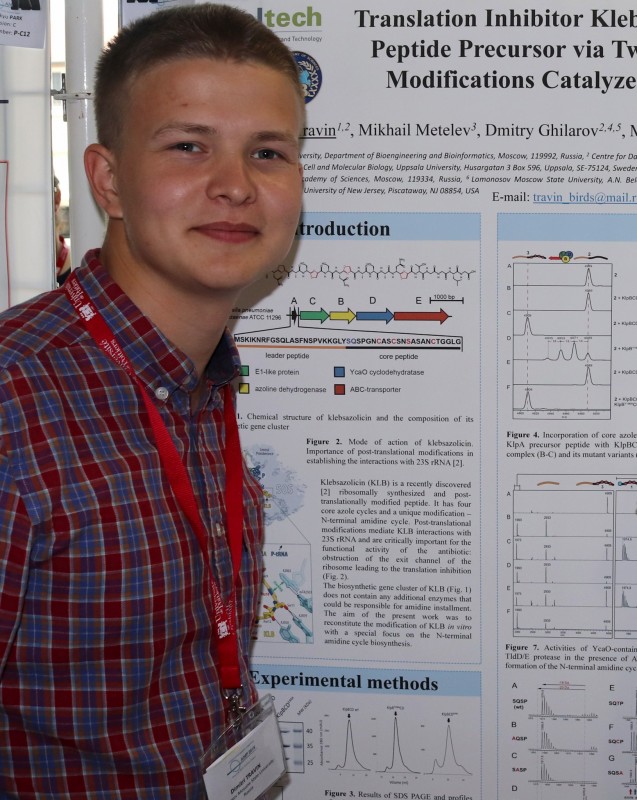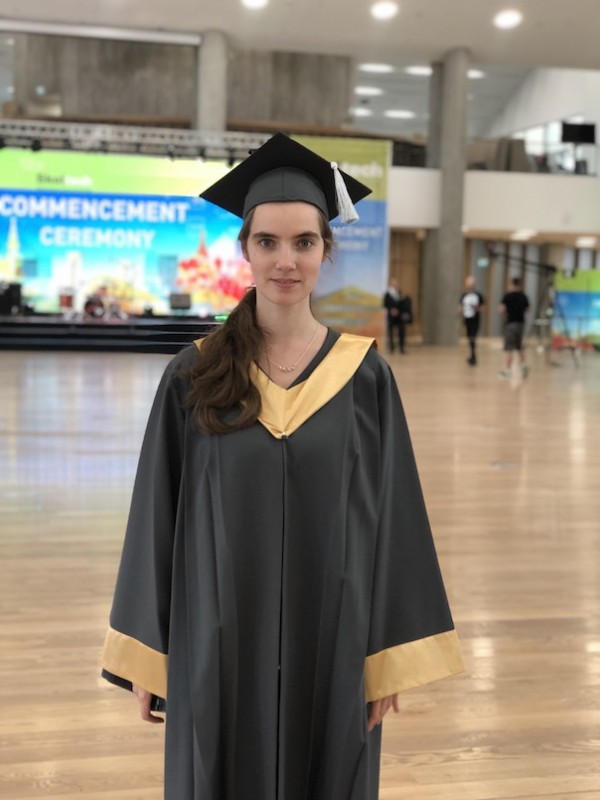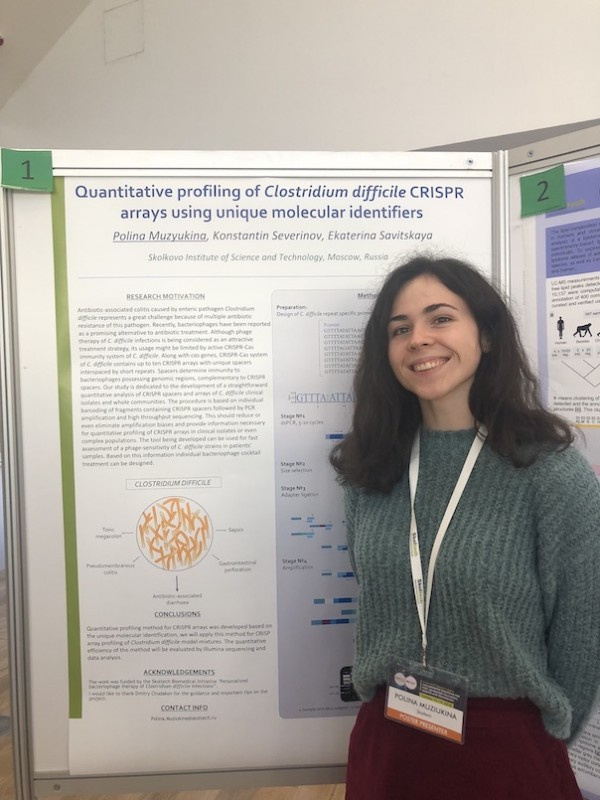Skoltech students and researchers from the Severinov Lab have brought home all three major fellowships awarded by the French Embassy in Russia in 2020. The newly minted Ostrogradski, Metchnikov, and Vernadski fellows spoke to us about their research projects and secret recipes for success.
Skoltech PhD student Dmitry Travin studies new peptide antibiotics and their role in microbial interactions, a field that brings together biochemical and genetic experiments as well as structural biology and bioinformatics. As part of his academic mobility in 2019, Travin spent several months at Université Paris-Saclay, where he found collaborators working with a particular kind of soil bacteria that produce phazolicin, an antibiotic discovered at the Severinov Lab. He hopes that his upcoming trip, supported by the short-term Ostrogradski fellowship, will let the group finish their experiments and prepare a research article for publication.
Sofia Medvedeva, a former Vernadski fellow who worked on her PhD in France, is getting ready to go back to the Hexagone for three months on a mid-term Metchikov fellowship. She will continue her research in CRISPR-Cas systems that bacteria and archaea use to defend themselves from viruses. Medvedeva says she did not have enough time during her PhD to work on the interaction between CRISPR-Cas systems and mobile genetic elements, a problem she hopes to tackle this time at the Institut Pasteur.
Polina Muziukina started working with Clostridium difficile and CRISPR-Cas systems during her Masters program at Skoltech, as part of a lab project in close cooperation with Professor Olga Soutourina of Université Paris-Saclay. Muziukina says that their work was significantly slowed down by the bureaucratic hurdles in shipping samples across borders, so she decided to apply for a long-term Vernadski fellowship to be able to work in both countries. Now a PhD student at both Skoltech and Université Paris-Saclay, Muziukina hopes she will be able to make an important contribution to the fight against antimicrobial resistance.
The lucky fellows say that a proven track record of international cooperation, including joint publications, as well as support on both sides of the long-standing French-Russian research collaboration, have helped them secure their fellowships.
“I think the fellowship programs offered by the French Embassy in Moscow are tremendously useful in fostering long-term collaborations and promoting exchange between scientists in Russia and France. Previously, two of my graduate students were lucky to get the Vernadski fellowship support and receive dual PhD degrees, one from Skoltech and Sorbonne, another from Skoltech and Université Paris-Saclay. Their projects led to important results and offshoots of this work are now supported by other mechanisms, including binational grants from Russian Foundation for Basic Research-CNRS,” Skoltech professor Konstantin Severinov said, noting that he is grateful to the officials in charge of these programs who are “always approachable and eager to help”.
“Scholarship programs set up by the French Embassy in Russia are efficient tools offering opportunities to students and researchers to go abroad and broaden their horizons, gain experience and improve language learning. The scholarship programs actively encourage and pursue research and higher education collaboration. They target our investment into translational research that will have a positive impact on the scientific cooperation between our two countries. They help expanding and increasing funding sources for our research, focusing upon promoting collaboration,” Counsellor for Science and Technologies to the French Embassy in Russia, Dr Abdo Malac, added.
Dr. Malac noted that many of the fellows go on to achieve spectacular results, such as former Metchnikov fellow Guzel Valeeva, who was among the 2019 L’OREAL Women in Science laureates. And Alexander Trifonov, director of the Nesmeyanov Institute of Organoelement Compounds and a recent recipient of the Ordre des Palmes Académiques, an order of knighthood of France for academics and educational figures, was also once a fellow.
Contact information:
Skoltech Communications
+7 (495) 280 14 81



